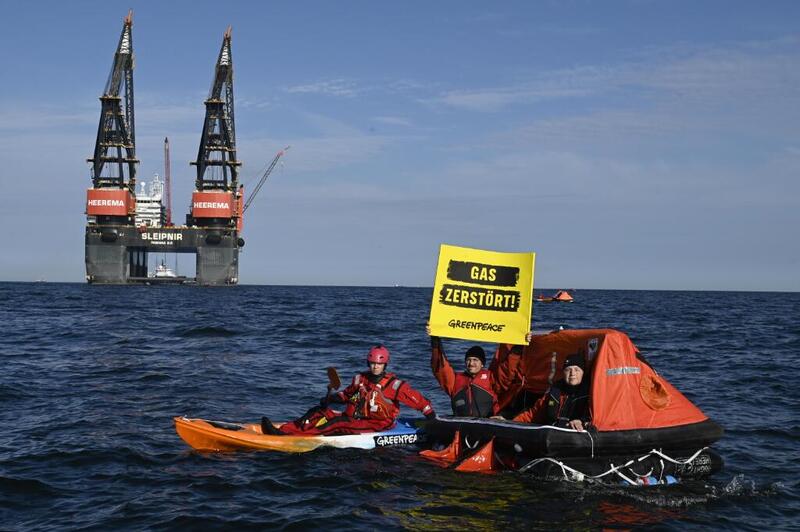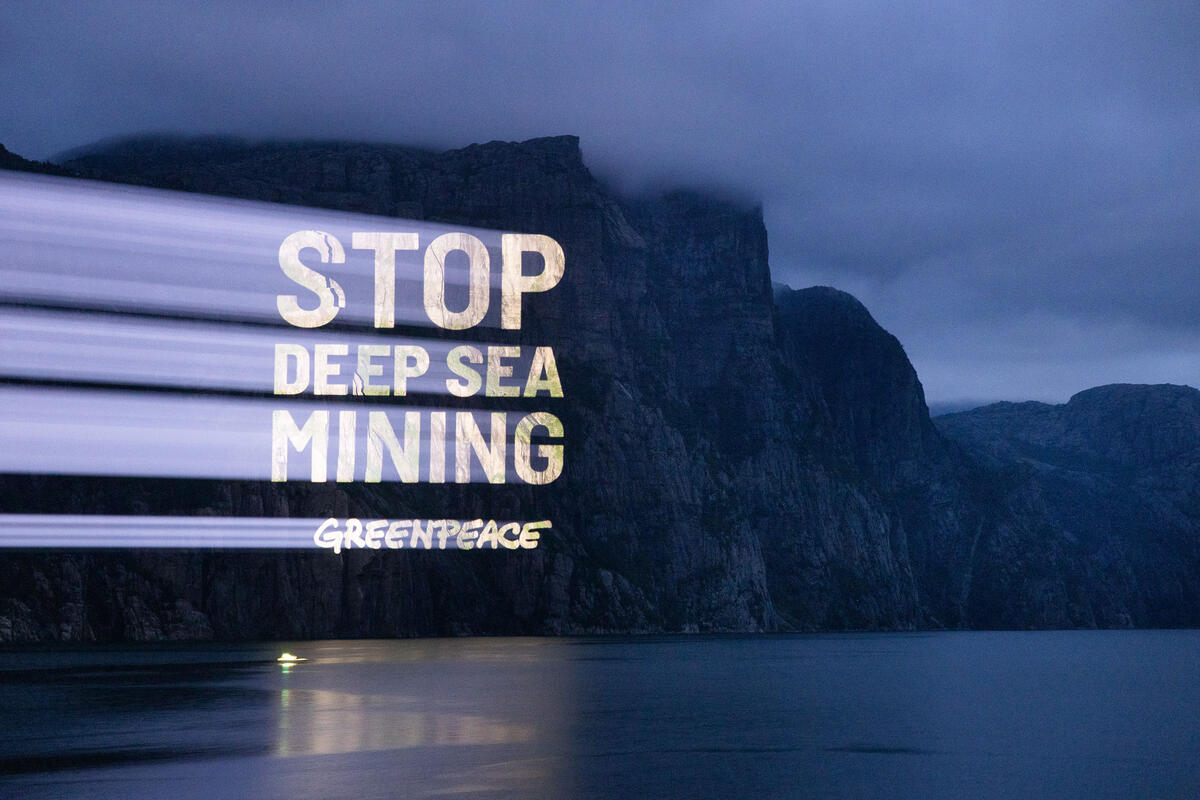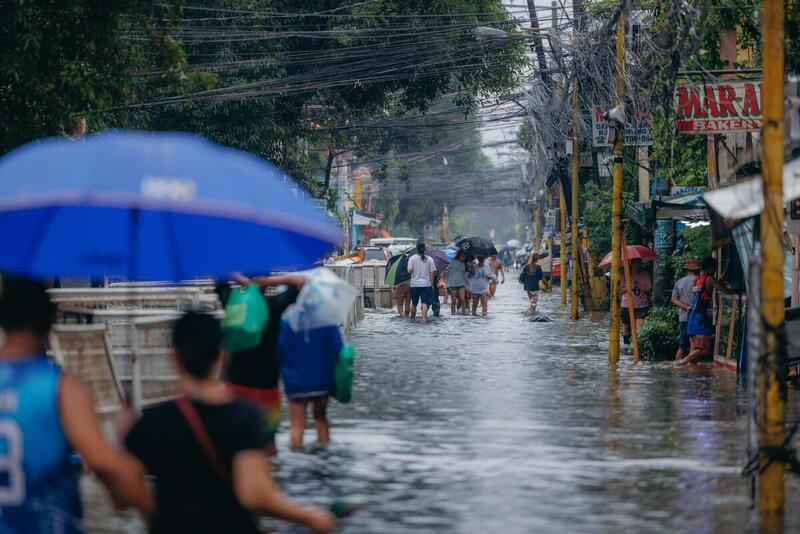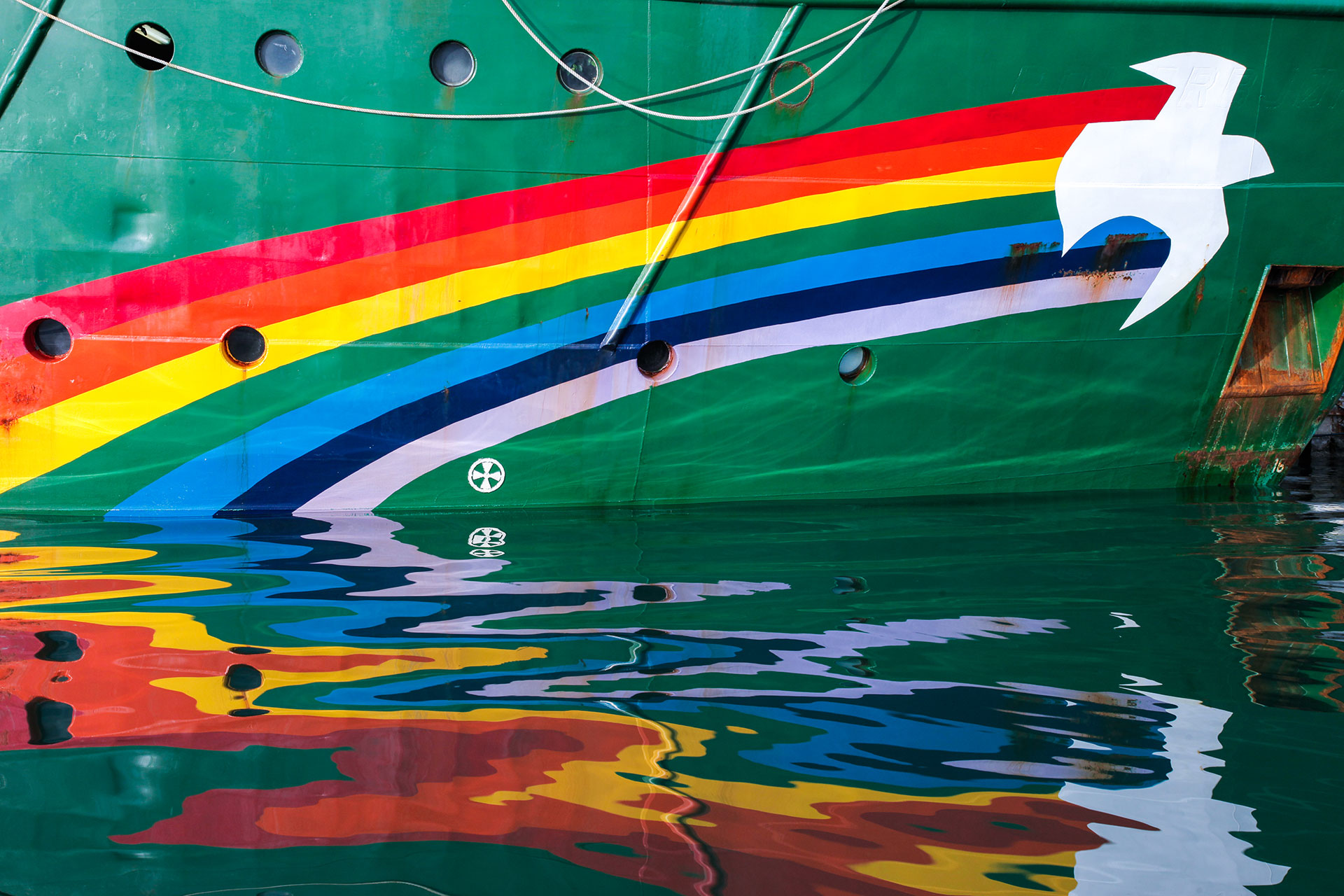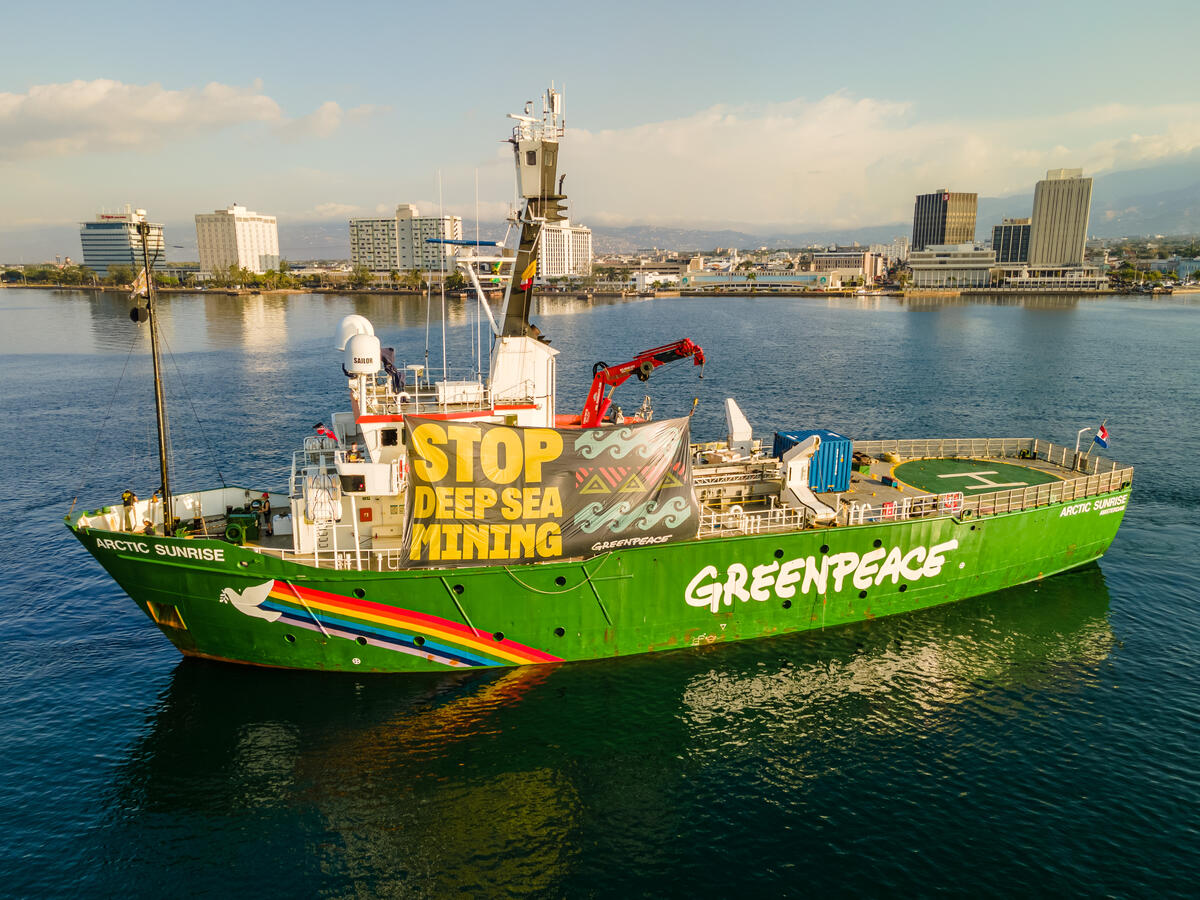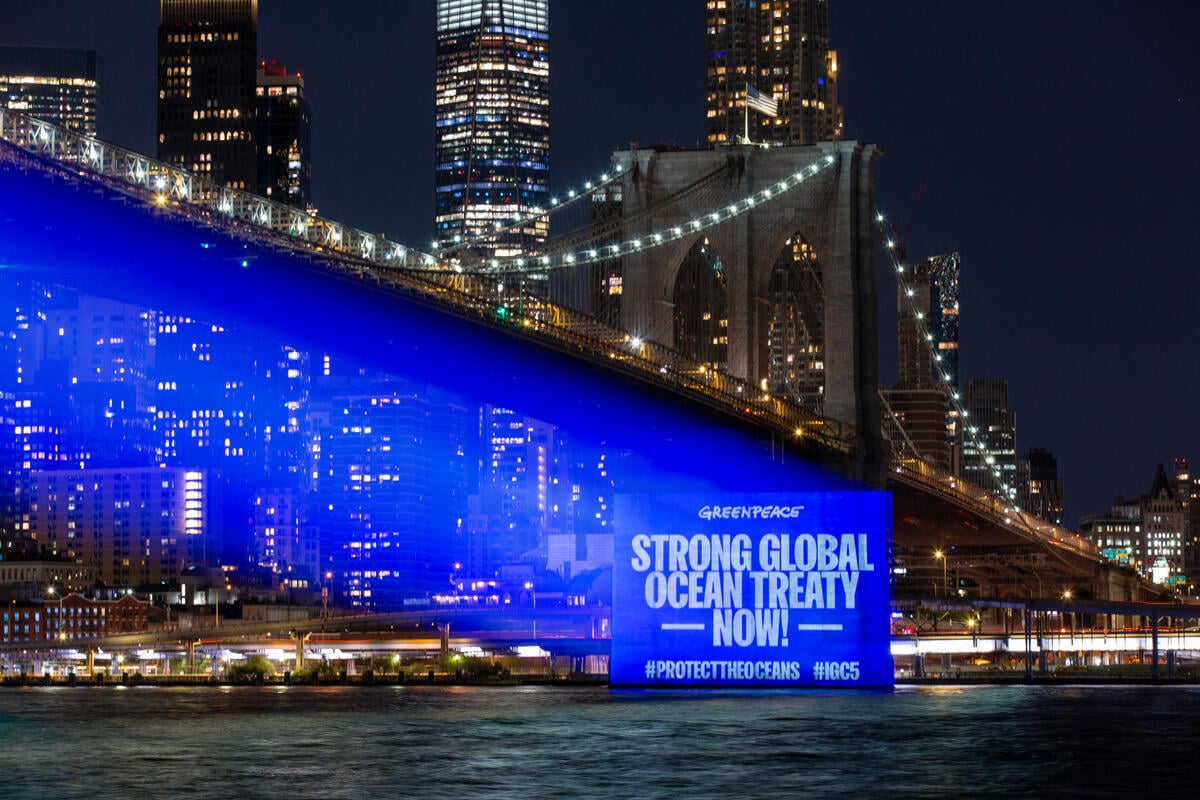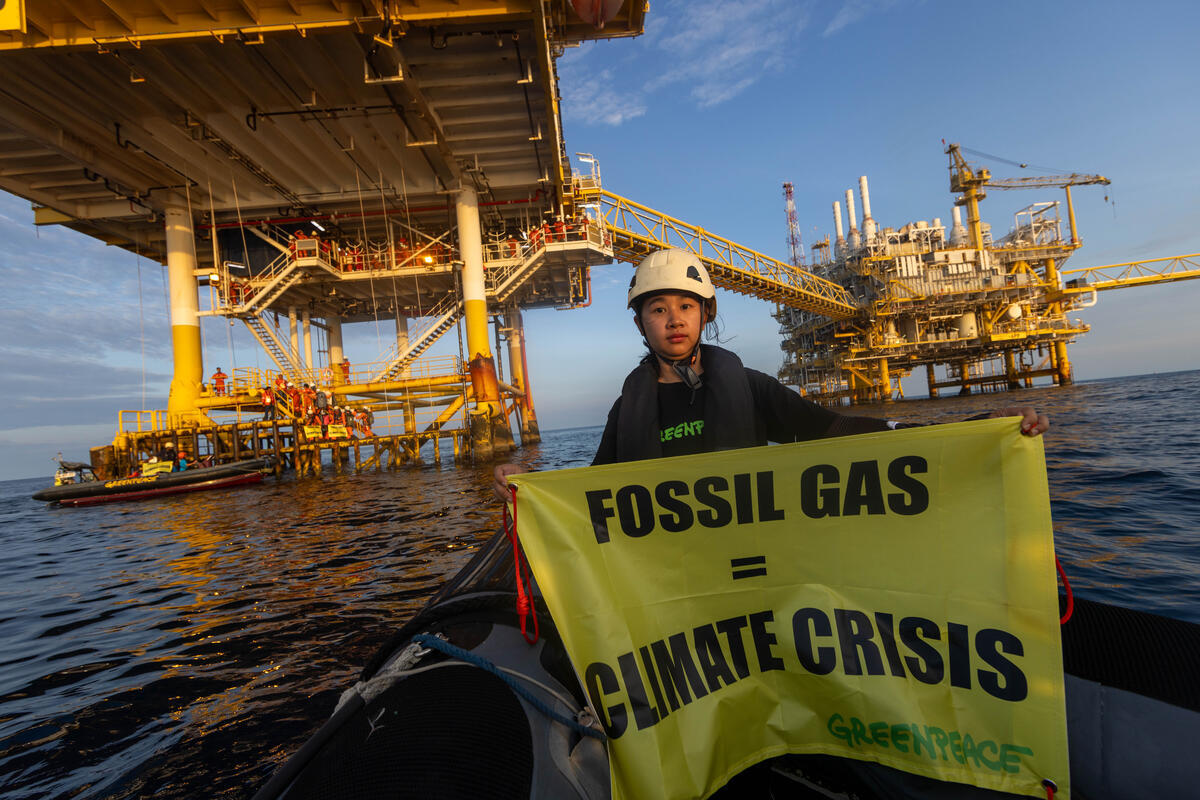-
‘No new gas’: floating protest camp in the North Sea to prevent the construction of a fossil gas extraction platform
Dutch energy company ONE-Dyas is willing to risk the destruction of precious ecosystems in the Wadden Sea for a project for which legal proceedings against the permit are still ongoing.
-
Greenpeace launches Arctic expedition to study vulnerable marine mammals in targeted deep sea mining area
As the Norwegian government is moving forward with the opening of Arctic waters to deep sea mining exploration, Greenpeace Nordic and Greenpeace Germany set sail with a group of scientists and campaigners heading to the mining area in the Norwegian Sea.
-
Greenpeace International challenges Energy Transfer in first use of EU anti-SLAPP Directive
Energy Transfer’s lawsuit is a perfect prototype of what the EU Directive aims to end: wealthy players using towering legal claims and costs to muzzle criticism.
-
Caught up in scandal, deep sea mining debate resumes in Kingston
Greenpeace is calling delegates in Kingston to prioritise protection, agreeing a pathway to a moratorium.
-
June 2024 was the hottest on record: Greenpeace calls for making polluters pay the mounting bill for extreme weather
Reacting to data from the Copernicus Climate Change Service that June 2024 was the hottest June on record, which makes it the 13th consecutive month for which the global average temperature reached a record.
-
First ever UN ‘Ocean COP’ on course for 2026 as governments double down on commitments
World governments at the UN Ocean Treaty's first meeting since it opened for signatures in 2023 have committed to a programme consistent with ratification in 2025 and an ambitious first Ocean Treaty COP (Conference of Parties) in 2026.
-
Greenpeace activists scale fossil gas platform in Gulf of Thailand to challenge offshore carbon capture scam
Activists from Greenpeace flagship Rainbow Warrior conducted a peaceful banner protest against a proposed offshore carbon capture and storage(CCS) site at the Arthit fossil gas field located in the Gulf of Thailand.

